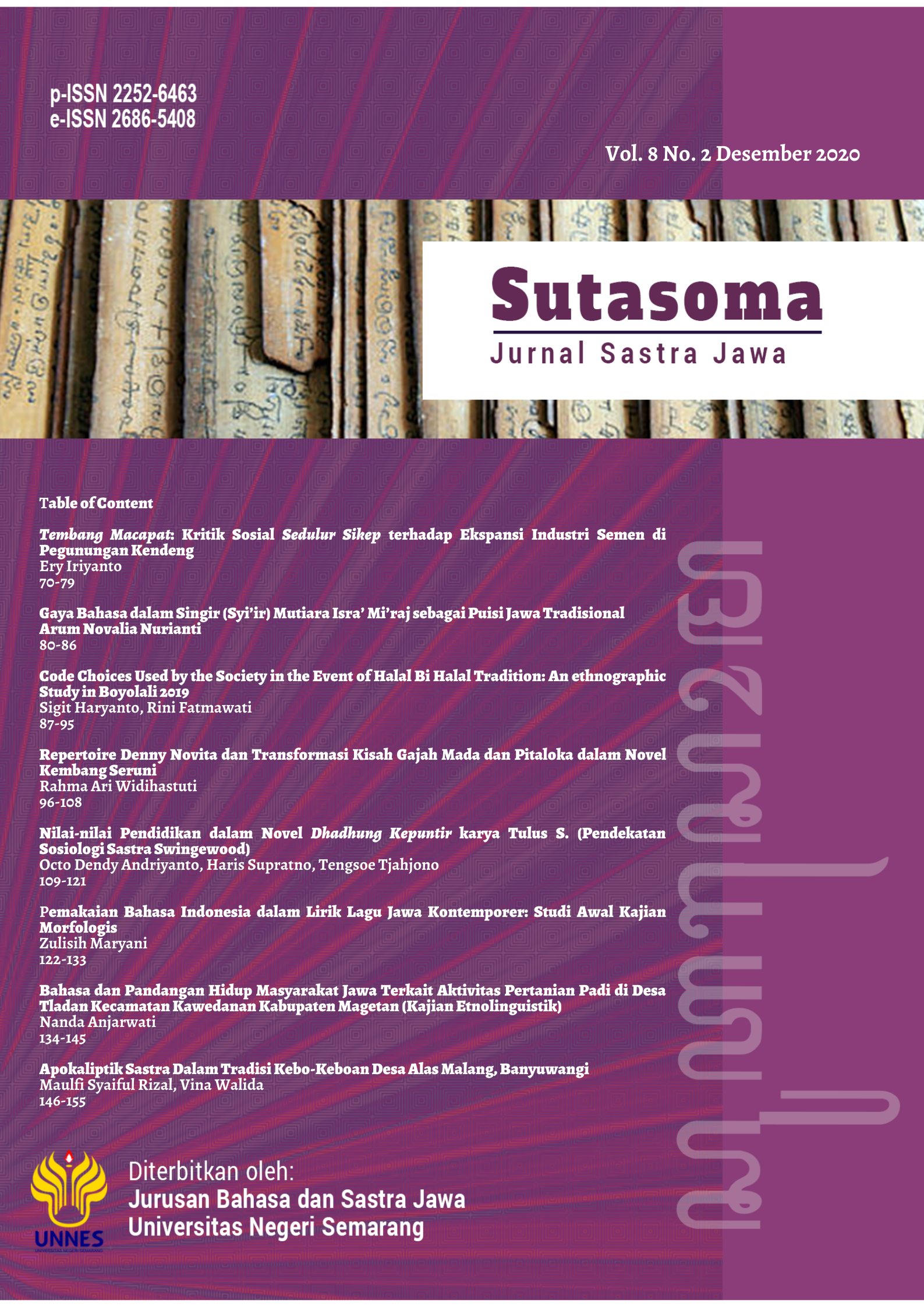Apokaliptik Sastra dalam Tradisi Kebo-Keboan Desa Alas Malang, Banyuwangi
##plugins.themes.academic_pro.article.main##
Abstract
A tradition that offers a magical element in its implementation always attracts the human senses. This magical element is one of the sacred factors in a tradition. One tradition that is thick with elements of sacredness is the tradition of boredom in the village of Alas Malang, Banyuwangi. Therefore, this research is written as an effort to maintain the existence of the kebo-keboan tradition so that it is in line with the development of the tourism world in Banyuwangi and to explain apocalyptic values ​​in a tradition called kebo-keboan. This apocalyptic value is a form of harmony between humans and nature in the implementation of the boredom tradition. This research is a qualitative descriptive study using ethnographic method approach. The data in this research is the speech or behavior of the people of Alas Malang Village related to apocalyptic elements. In collecting data, researchers used observation and interview techniques. Meanwhile, in analyzing the data, the researcher took several steps, namely data reduction, data presentation, and drawing conclusions. The results of the research show the stages in the implementation of the kebo-keboan tradition which are divided into three, namely the opening, the core in the form of the earth ider, and the closing. Literary apocalyptic in the cultural tradition is described in the figure of Mbah Buyut Karti who is considered a hero, the agricultural environment and pageblug as an apocalyptic environment, and whisik as a vision or prophecy.
##plugins.themes.academic_pro.article.details##
Untuk dapat diterima dan diterbitkan oleh Sutasoma : Jurnal Sastra Jawa, penulis yang mengirimkan naskah artikel harus menyelesaikan semua tahapan review. Dengan mengirimkan naskah, penulis menyetujui persyaratan berikut:
- Hak cipta atas artikel yang diterima diserahkan kepada Sutasoma : Jurnal Sastra Jawa selaku penerbit jurnal. Hak cipta yang dimaksud meliputi hak untuk menerbitkan artikel dalam berbagai bentuk (termasuk cetak ulang). Sutasoma : Jurnal Sastra Jawa mempertahankan hak publish atas artikel yang diterbitkan.
- Penulis diperbolehkan menyebarluaskan artikel yang telah diterbitkan dengan membagikan link/DOI artikel di Sutasoma : Jurnal Sastra Jawa]. penulis diperbolehkan untuk menggunakan artikel mereka untuk tujuan hukum yang dianggap perlu tanpa izin tertulis dari Sutasoma : Jurnal Sastra Jawa dengan pengakuan publikasi awal jurnal ini.
- Pengguna/penggunaan publik dari situs web ini akan dilisensikan ke CC BY-NC-SA (Attribution & Non-Commercial-ShareAlike).
